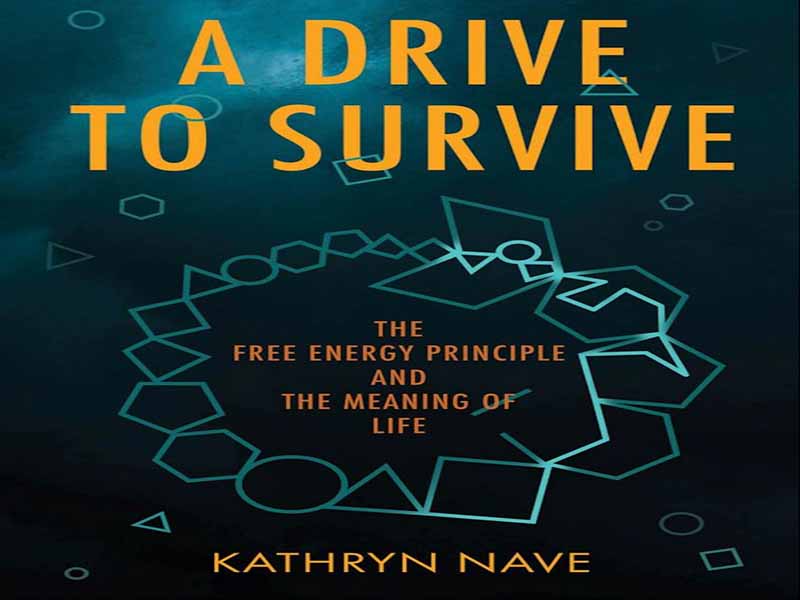- عنوان کتاب: A Drive to Survive -The Free Energy Principle and the Meaning of Life
- نویسنده: Kathryn Nave
- حوزه: معنای زندگی
- سال انتشار: 2025
- تعداد صفحه: 319
- زبان اصلی: انگلیسی
- نوع فایل: pdf
- حجم فایل: 12.8 مگابایت
این کتاب نمیتوانست بدون حمایت ساکن یک زیرزمین بزرگ که درست زیر جایی که بزرگراه M4 از ووکینگهام عبور میکند، نوشته شود. در اینجا مرکز کنترل برق شبکه ملی (ECC)، “مغز” پشت شبکه برق بریتانیا، قرار دارد. این سیستم نیمه خودکار با نظارت بر میلیونها حسگر در سراسر کشور، به طور مداوم سطح ۴۰۰ کیلوولت (کیلوولت) را در سراسر پنج هزار مایل خطوط برق شبکه حفظ میکند. حفظ جریان بیوقفه برق به رایانهای که در آن مینویسم، در کنار هر سیستم الکتریکی دیگر در کشور، به موفقیت ECC در حفظ آن نقطه تنظیم در محدوده تلرانس تنها پنج درصد بستگی دارد. اگر عرضه از تقاضا پیشی بگیرد، ECC با کاهش قیمت برق، فشار را آزاد میکند. اگر تقاضا افزایش یابد، مرکز کنترل به سرعت ذخایر خود را برای جبران افزایش میدهد – به عنوان مثال، با دستور دادن به نیروگاه دینورویگ برای آزاد کردن نه میلیارد گالن آب ذخیره شده در نزدیکی قله الیدر فاور، این انرژی پتانسیل گرانشی را به نیروی برق کافی تبدیل میکند تا اطمینان حاصل شود که میلیونها خانوار در سراسر بریتانیا میتوانند همزمان فنجان قهوه صبحگاهی خود را بدون فرو بردن کشور در خاموشی درست کنند. در سالهای اخیر، این وظیفه نظارتی به لطف جایگزینی ذخایر سنتی پشتیبانی ولتاژ، مانند زغال سنگ و گاز، با جایگزینهای سازگار با محیط زیست اما ناپایدار خورشیدی و بادی، چالش برانگیزتر شده است. برای بودجهبندی با چنین نیروهای غیرقابل اعتمادی، شبکه باید از طریق استقرار سیستمهای هوش مصنوعی برای پیشبینی افزایش تقاضا یا قطعیهای ناشی از آب و هوا، “هوشمندتر” شود. این موارد ECC را قادر میسازد تا به طور خودکار اقدامات پیشبینیکننده را برای حفظ تعادل ظریف شبکه انجام دهد. هیچ دلیل اساسی وجود ندارد که چرا مرکز کنترل شبکه ملی نتواند به یک سیستم کاملاً خودکار و پیشبینیکننده تبدیل شود.
This book could not have been written without support from the inhabitant of a large basement that lies just beneath where the M4 motorway passes through Wokingham. Here lives the National Grid’s Electricity Control Centre (ECC), the “brain” behind the UK’s power network. By monitoring millions of sensors across the country, this partially automated system works to continuously maintain a level of 400 kilovolts (kv) throughout the grid’s five thousand miles of powerlines. The maintenance of an uninterrupted flow of electricity to the computer at which I’m writing, alongside every other electrical system in the country, depends upon the ECC’s success at mantaining that set point within a tolerance of just five percent. If supply outstrips demand, the ECC releases pressure by lowering electricity prices. If demand increases, the control center rapidly spins up its reserves to compensate—for instance, by instructing Dinorwig power station to release the nine billion gallons of water stored near the summit of Elidir Fawr, converting this gravitational potential energy into enough electrical power to ensure that millions of households across the UK can simultaneously make their morning cup of coffee without plunging the nation into a blackout. In recent years, this regulatory task has become more challenging, thanks to the replacement of traditional voltage support reserves, such as coal and gas, with the environmentally friendlier but inconstant alternatives of solar and wind. In order to budget with such unreliable forces, the grid has had to get “smarter” via the deployment of AI systems to forecast demand increases or weather-induced outages. These enable the ECC to automatically take predictive actions to maintain the delicate balance of the grid. There is no in-principle reason why the national grid’s control center could not become a fully automated, anticipatory system.
این کتاب را میتوانید از لینک زیر بصورت رایگان دانلود کنید:
Download: A Drive to Survive





































نظرات کاربران